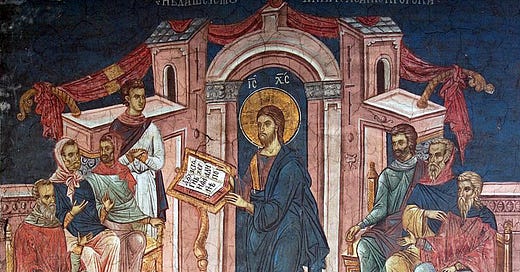The beginning of the annual liturgical cycle (indiction) falls on this day, according to the Julian calendar.
The reading of the day is dedicated to the sermon of the Lord in a Nazareth synagogue and the first rejection of Him by the Israelites. “The Spirit of the Lord is upon me, because he hath anointed me to preach the gospel to the poor; he hath sent me to heal the brokenhearted, to preach deliverance to the captives, and recovering of sight to the blind, to set at liberty them that are bruised. To preach the acceptable year of the Lord.” This account is contained only in St. Luke's Gospel (4:16-30)
Christians have good reasons not to be pleased with Emperor Diocletian (r. 284–305) for all the torture and persecution he inflicted upon our forefathers. Diocletian can be compared to Holy Prince Vladimir during the first, pagan, period of his life, when he started a xenophobic Christian persecution to unify the populace. The difference between the two is that for Diocletian, there was no second period. He never repented or converted. However, the paradox is that without Diocletian’s state reforms, we would not have Emperor Constantine the Great as we know him.
Structural changes followed the army’s proclamation of Diocles (as he then was), the chief of Pretorian guards, as emperor. Times of crisis require a single rule. One of the reforms was assigning a five-year cycle for what used to be “indicated” as extraordinary taxation. From here, we have the Latinized Greek word “indication.” Emperor St. Constantine extended this cycle to fifteen years.
Keep reading with a 7-day free trial
Subscribe to This Day in the Life of the Church with Andrei Psarev to keep reading this post and get 7 days of free access to the full post archives.




